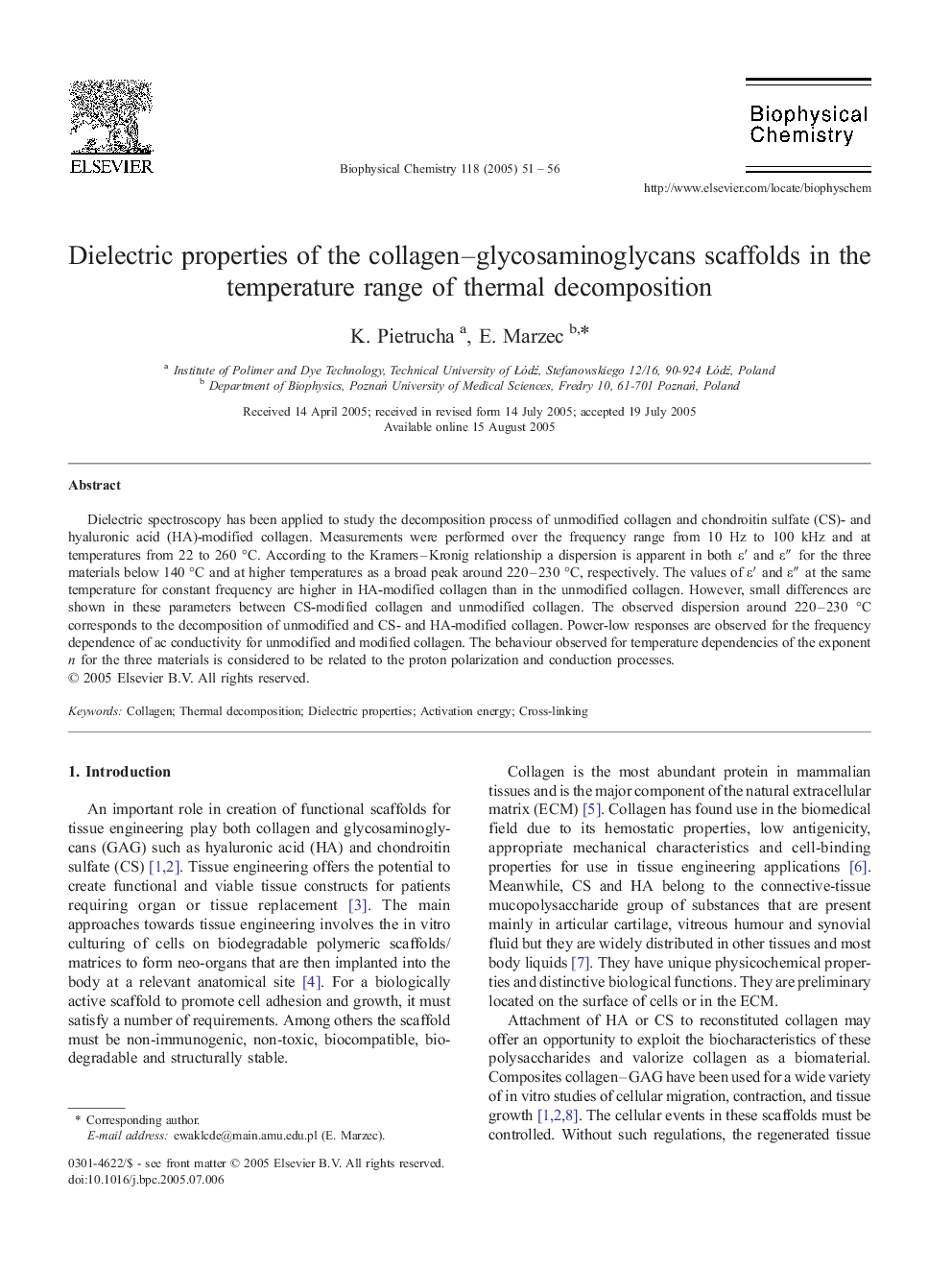| Article ID | Journal | Published Year | Pages | File Type |
|---|---|---|---|---|
| 9573326 | Biophysical Chemistry | 2005 | 6 Pages |
Abstract
Dielectric spectroscopy has been applied to study the decomposition process of unmodified collagen and chondroitin sulfate (CS)- and hyaluronic acid (HA)-modified collagen. Measurements were performed over the frequency range from 10 Hz to 100 kHz and at temperatures from 22 to 260 °C. According to the Kramers-Kronig relationship a dispersion is apparent in both εⲠand εⳠfor the three materials below 140 °C and at higher temperatures as a broad peak around 220-230 °C, respectively. The values of εⲠand εⳠat the same temperature for constant frequency are higher in HA-modified collagen than in the unmodified collagen. However, small differences are shown in these parameters between CS-modified collagen and unmodified collagen. The observed dispersion around 220-230 °C corresponds to the decomposition of unmodified and CS- and HA-modified collagen. Power-low responses are observed for the frequency dependence of ac conductivity for unmodified and modified collagen. The behaviour observed for temperature dependencies of the exponent n for the three materials is considered to be related to the proton polarization and conduction processes.
Related Topics
Physical Sciences and Engineering
Chemistry
Physical and Theoretical Chemistry
Authors
K. Pietrucha, E. Marzec,
